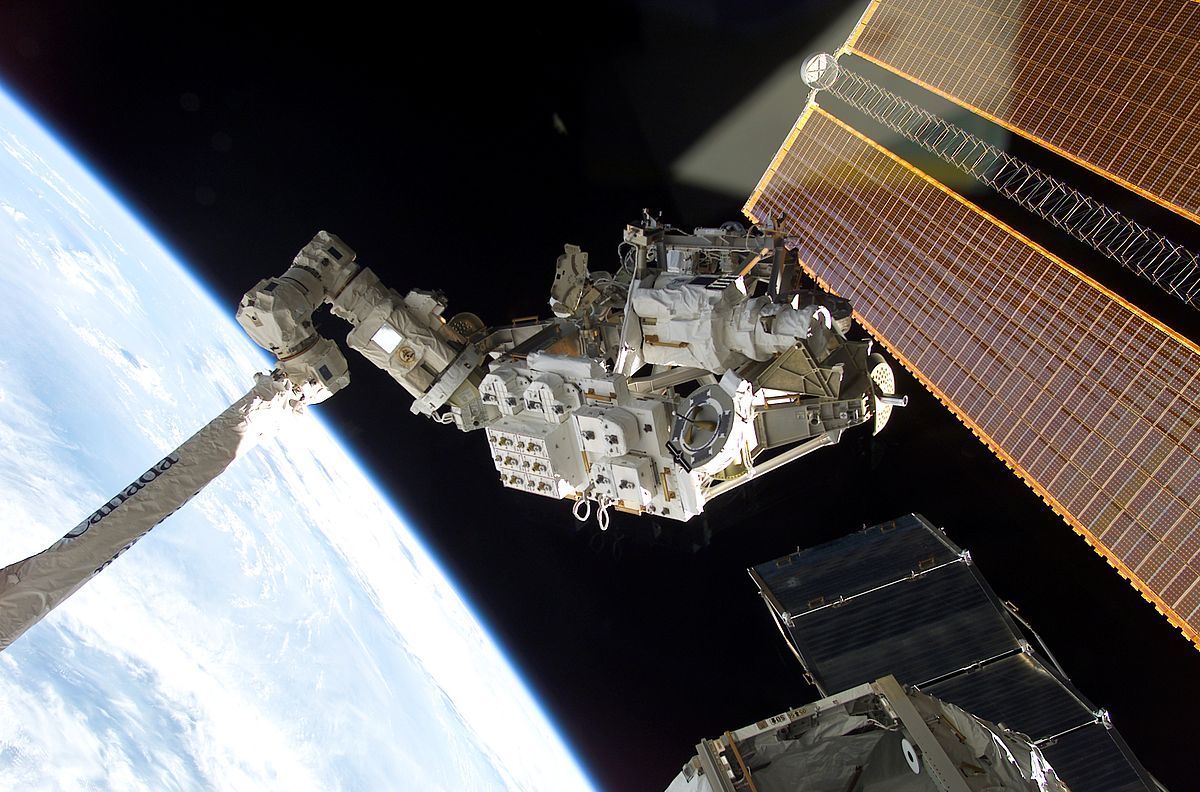Canada News
Toronto hosts international convention which brings world of space to Canada

The Mobile Base System just before Canadarm2 installed it on the Mobile Transporter during STS-111. Photo from NASA / Wikimedia Commons.
Toronto will be the centre of the universe next week.
The city will host the 65th International Astronautical Congress, a conference aimed at helping companies in the space business.
As well as looking at where man has gone and may go in the future, the meeting will examine how the discovery of extraterrestrial intelligence could affect society.
The Canadian Aeronautics and Space Institute is hosting the week-long event, which begins Monday with 3,000 participants from about 70 countries.
“It’s a great convening of the global space community,” Geoff Languedoc, the institute’s executive-director, said in an interview. “We have brought the world of space to Canada.”
Besides industry, the congress brings together academia and government representatives from countries that include Russia, China, the United States and Europe.
The Americans are sending almost 600 delegates while Germany and China will also have large contingents.
Languedoc says the gathering will try to develop relationships with other space organizations throughout the world “that will propel Canadian industries forward.”
“We don’t have a big enough domestic government-run space program,” he added.
Space-related industries are now being challenged by tight government budgets and more than 150 companies and organizations will be visible at the Toronto convention.
One highlight will be a plenary session Monday afternoon where leaders of the world’s major space agencies will outline the latest developments in their countries.
The session could also provide some insight into the future of the International Space Station and its Canadarm.
The United States will continue to support the giant orbiting space lab until at least 2024, but Canada so far is only committed to 2020.
Pierre Jean, who manages the Canadian Space Agency’s involvement, says the space station should be able to operate until 2028.
“When we did the initial structural analysis of the system, we planned it for 30 years,” he said in an interview. “We wanted to make sure the design was robust (and) if anything, it was over-designed.”
Jean said the Canadian government would need to decide “within the next two or three years” whether to extend its support.
“The latest it could be would probably be in 2018,” he said, adding that the space station’s other partners need enough lead time to know whether Canada is in or out.
Jean also pointed out that the Canadarm2 on the space station is being used extensively to grab the commercial spacecraft that deliver supplies to the astronauts.
“If you look ahead a year, we roughly have anywhere from four to six vehicles we’re going to capture every year,” he added.
The robotic arm has been “up there” since 2001 and, even though light bulbs have blown out, its cameras are still functional and operations are carried out during daytime.
“Basically, there’s nothing that precludes Canadarm2 from operating indefinitely on orbit,” he added.
But grabbing visiting spacecraft isn’t Canada’s only involvement on the space station.
Canadian activities during 2013 will be the focus of a presentation by Nicole Buckley, the CSA’s chief scientist in charge of life sciences.
She says Canadian scientists have been doing a lot of work on how the bones and hearts of astronauts have been affected by extended visits.
“One of our scientists has commented that, after six months in space, the cardiovascular system can age something like 10 to 20 years,” Buckley said in a recent interview.
“There are many parallels between some of the changes that occur in space and what occurs with an aging population.”
Bone loss in space is being closely studied.
“Based on six months, we know that you’re losing bone at 10 times the rate of a woman with osteoporosis,” she said.
Buckley said combining age research in space with what’s being done on Earth may lead to some real advances.
She was optimistic when asked if that research could be used to slow down aging.
“I’m a scientist,”‘ she said. “I think anything is possible”
“One day, that bone research is going to help my mom, who’s 90, if we can do it fast enough.”
Canada’s presence on the International Space Station is well known when compared with other countries like Israel, which is hosting next year’s International Astronautical Congress.
Prof. Isaac Ben-Israel, the head of the Israel Space Agency, says there’s an explanation for that.
“There is no big difference in the capabilities, the number of satellites, etc.,” he said in an interview. “If you ask me, the main reason for this is the Canadian arm on the space station and the Canadian flag” which is visible on the arm.
Israel took steps in 2012 to advance its own space program.
“Usually we’ve spent money only on defence space activities and years ago we changed it and started to invest government money in civilian space activities—on science, research, commercial and things like that,” he said.
Ben-Israel noted the Futron space index published in the United States puts Israel one step behind Canada.
“If you read the analysis they gave, they always say that in terms of technology, we are a leading country, but what lowers our mark, our grade, is the scale of civilian activity and this is what we are trying to change.”





















